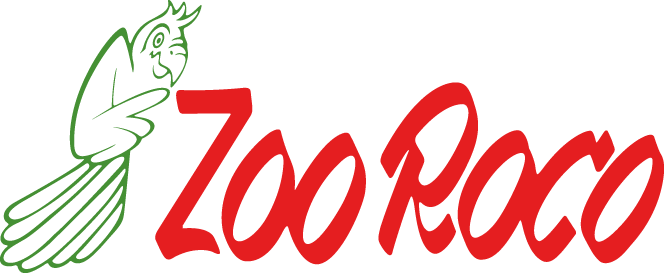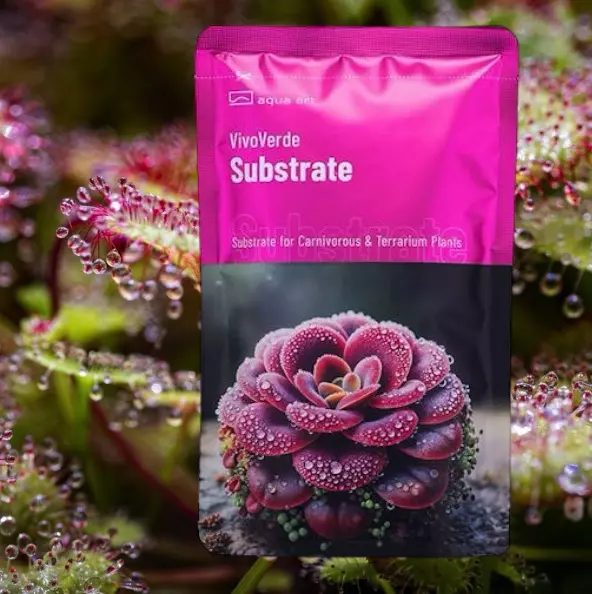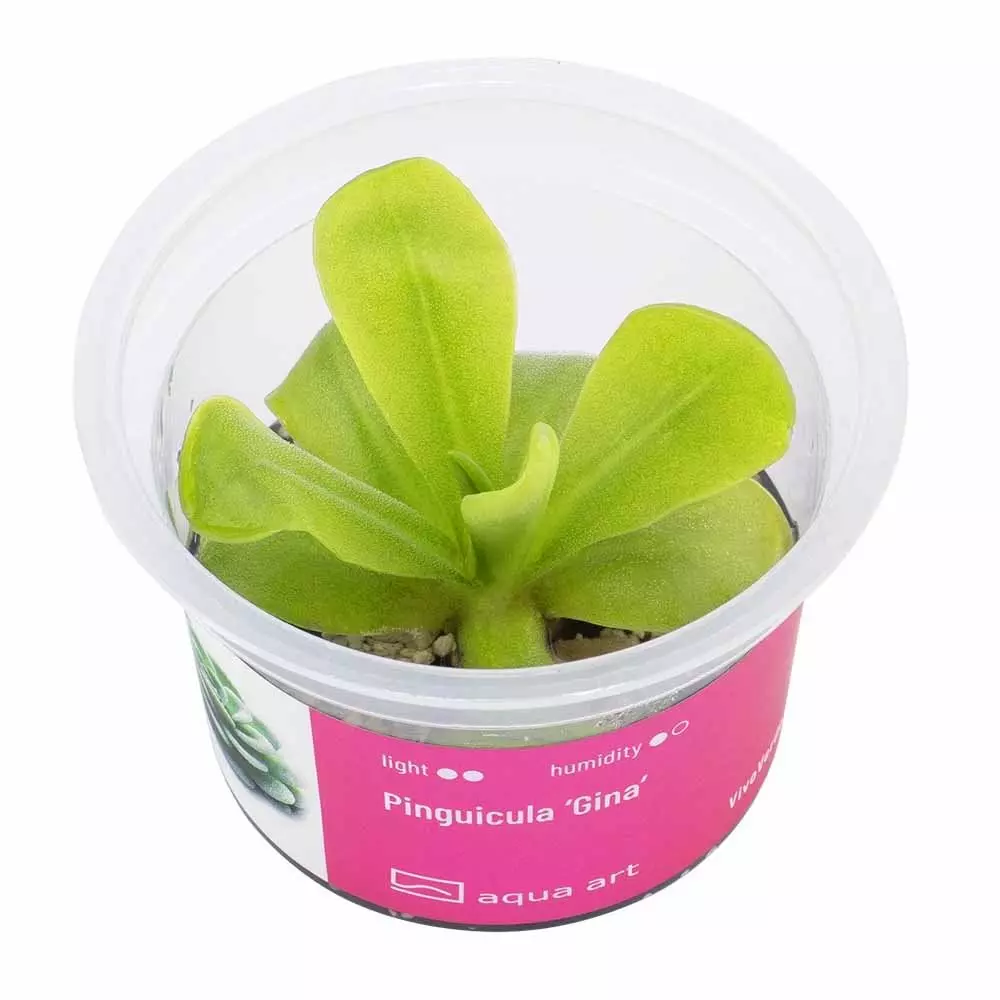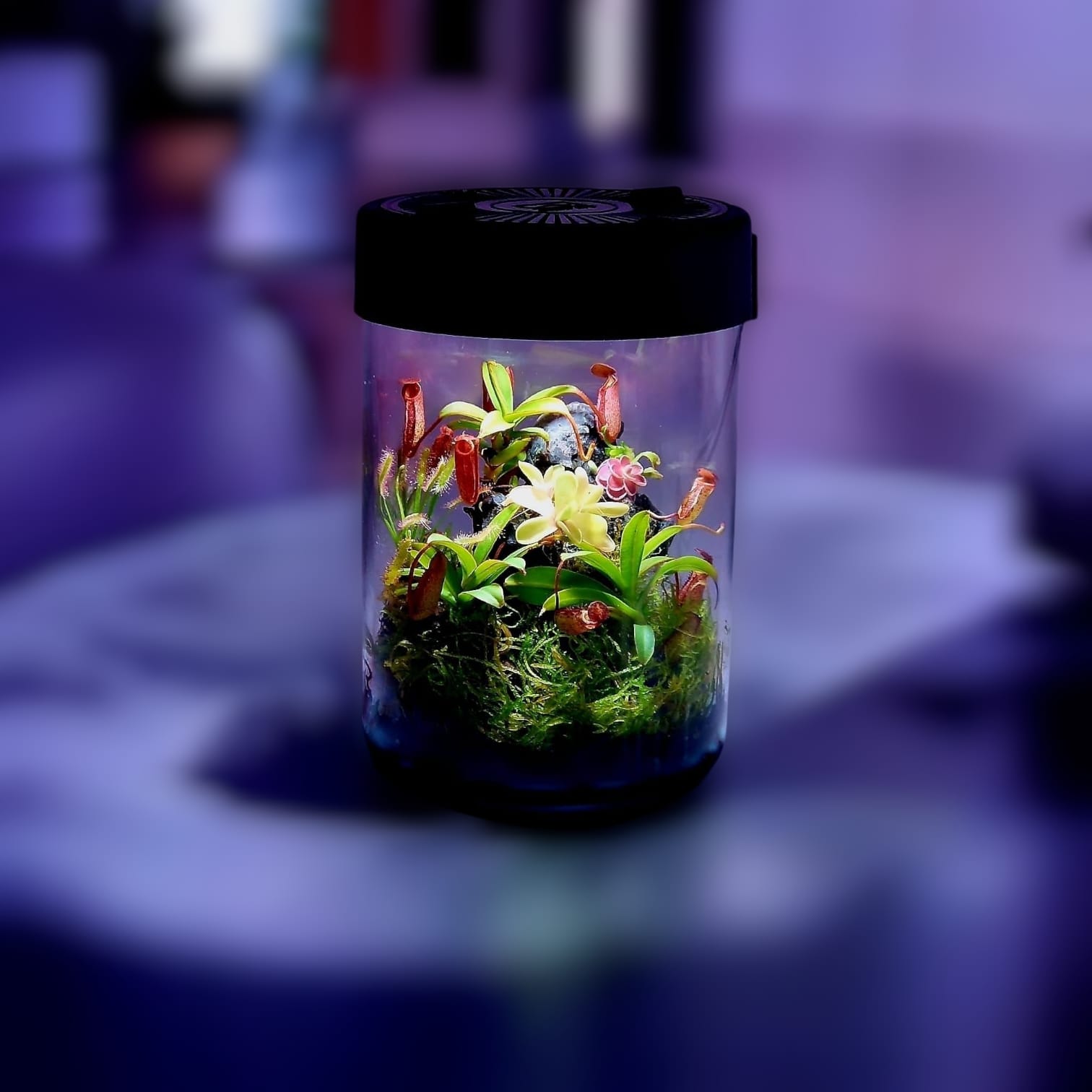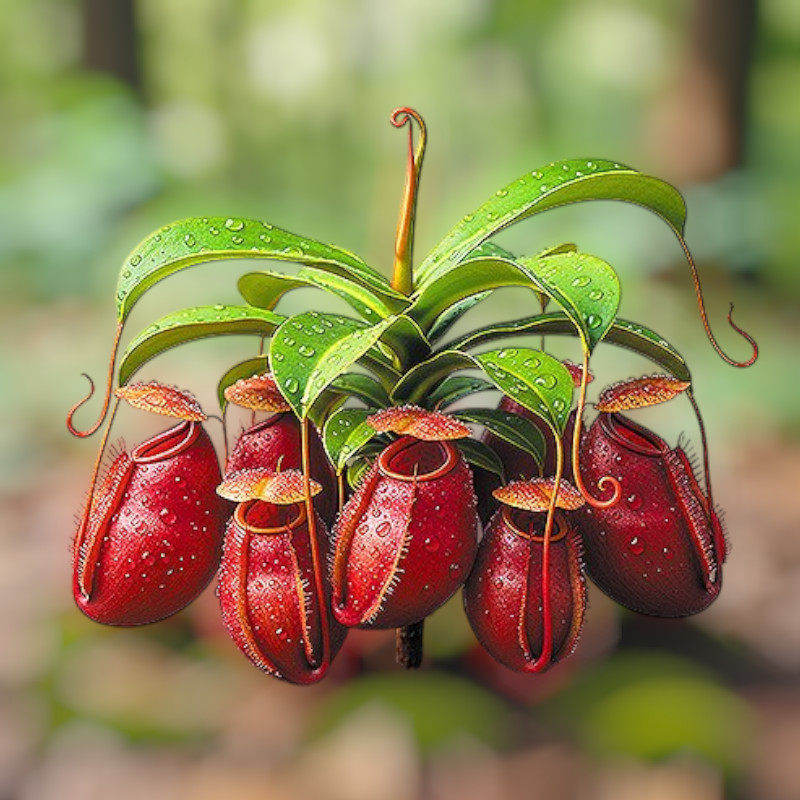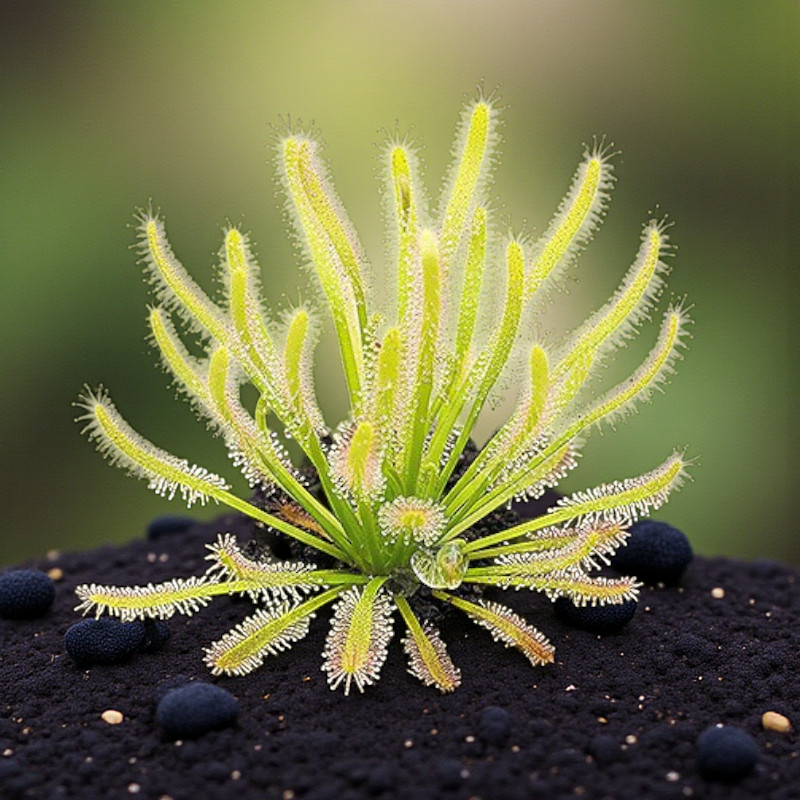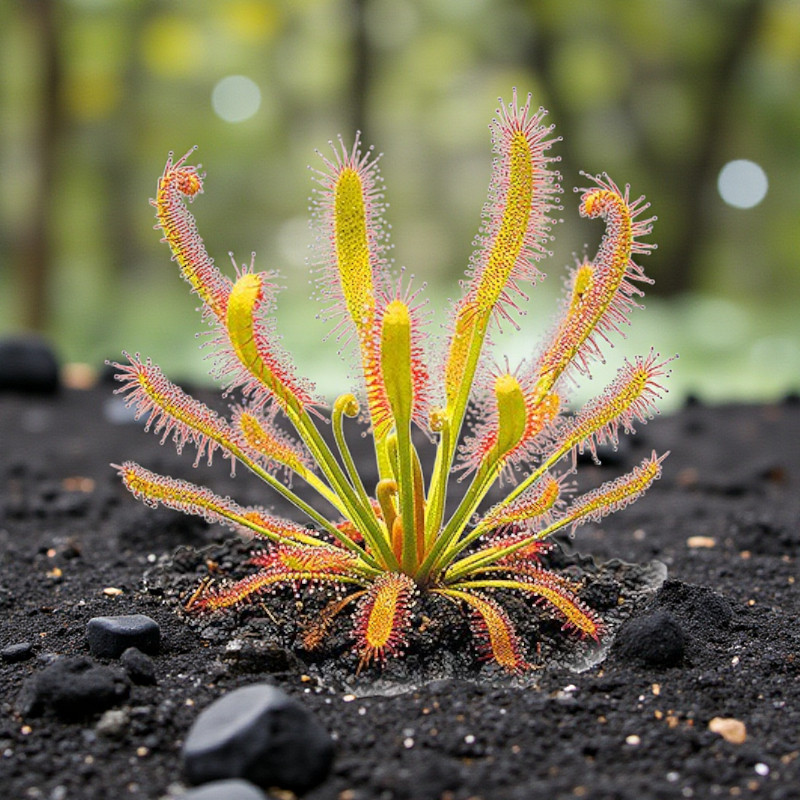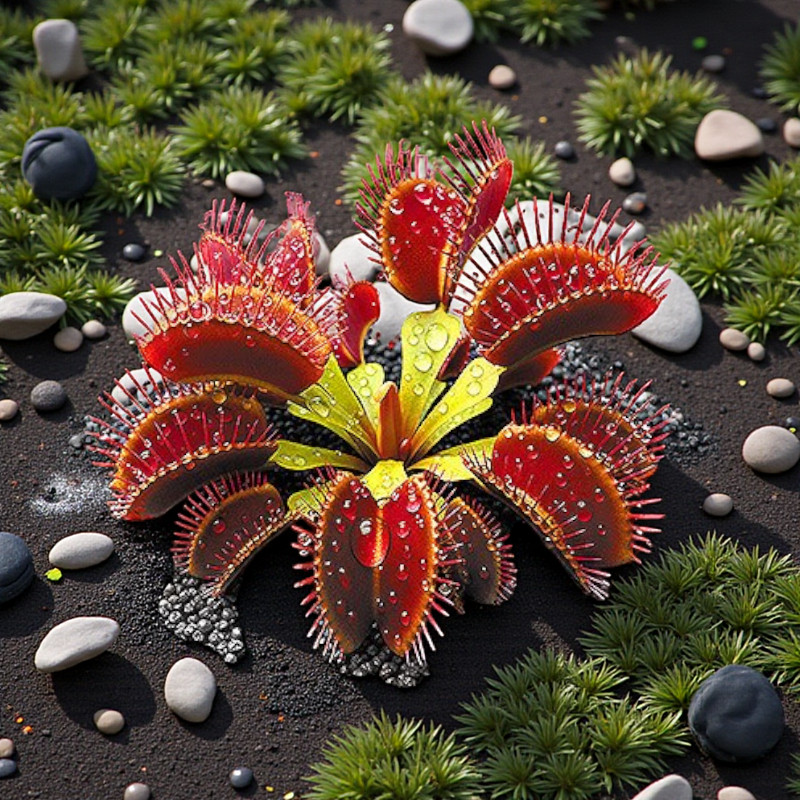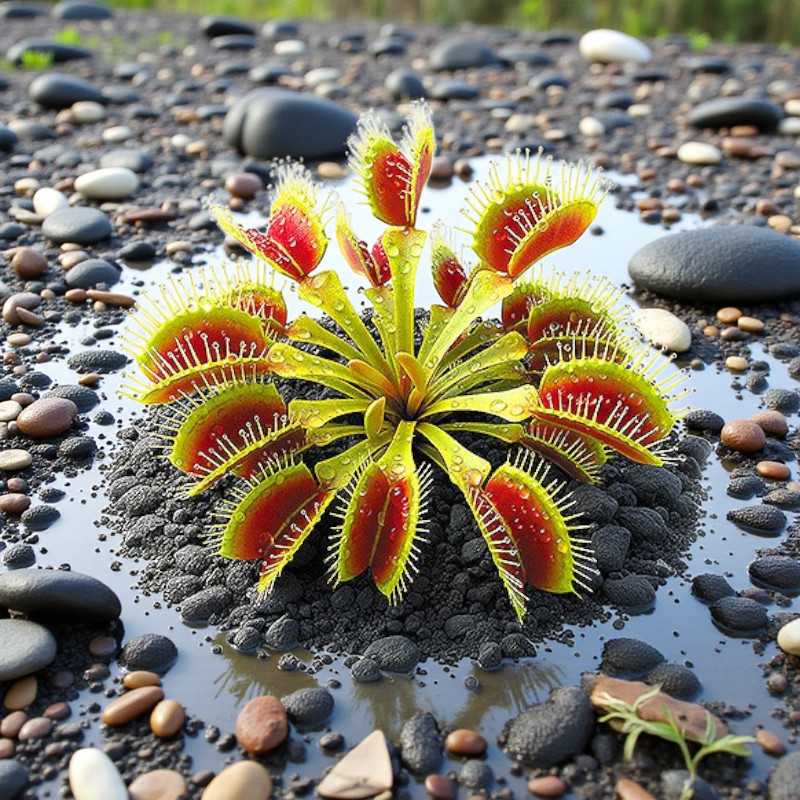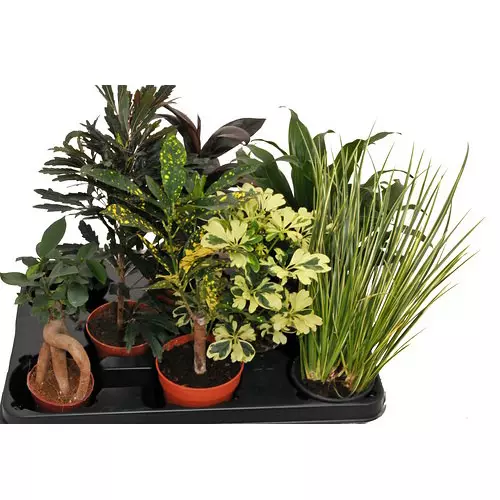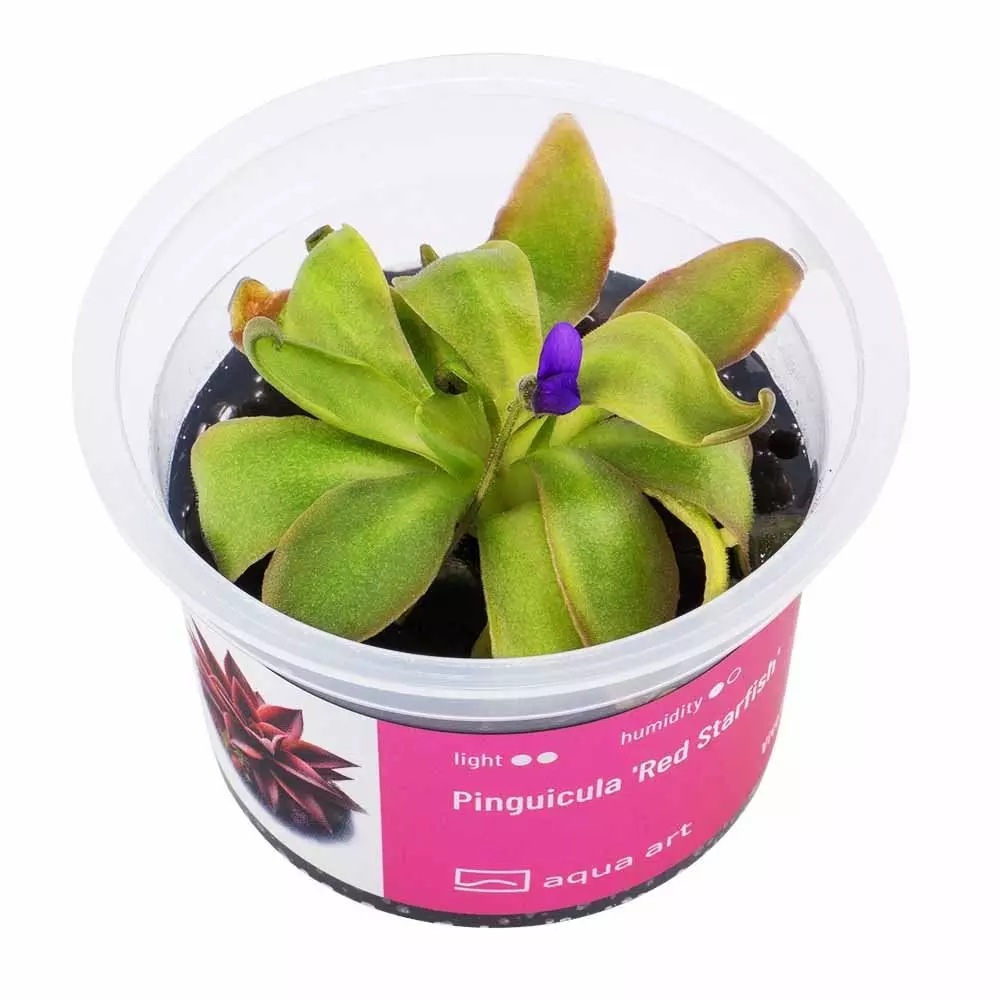
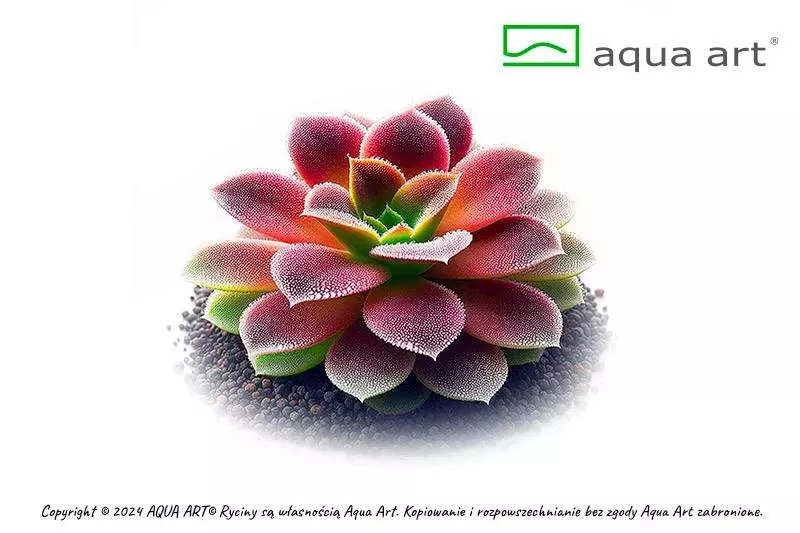














CHF 12.90
Stock: 0
Available in 1-3 days, acquisition time 14 days

Carnivorous plant - Pinguicula Niklas
- supplied in an in vitro cup
- Diameter up to 5.5cm
- Humidity: 50-80%
- Temperature: 15-25 °C
- Flowering light pink mostly in spring
Size:
The diameter of the rosette can reach up to 5.5cm.
Flowers:
Delicate, attractive flowers, usually pink to light purple with a white or lighter throat.
Light:
Pinguicula Niklas prefers bright, indirect light with occasional direct sunlight.
Substrate:
A well-drained mixture often consisting of peat, perlite and sand.
Feeding/fertilizing:
Avoid fertilizing the substrate! The plant gets all the nutrients it needs from the prey it catches or eats.
The humidity should be between 50-80%.
The ideal temperature for this plant is 15-25 °C
Propagation is by leaf cuttings
0 of 0 reviews
Login
Customers also bought
Similar products
Customers also viewed
